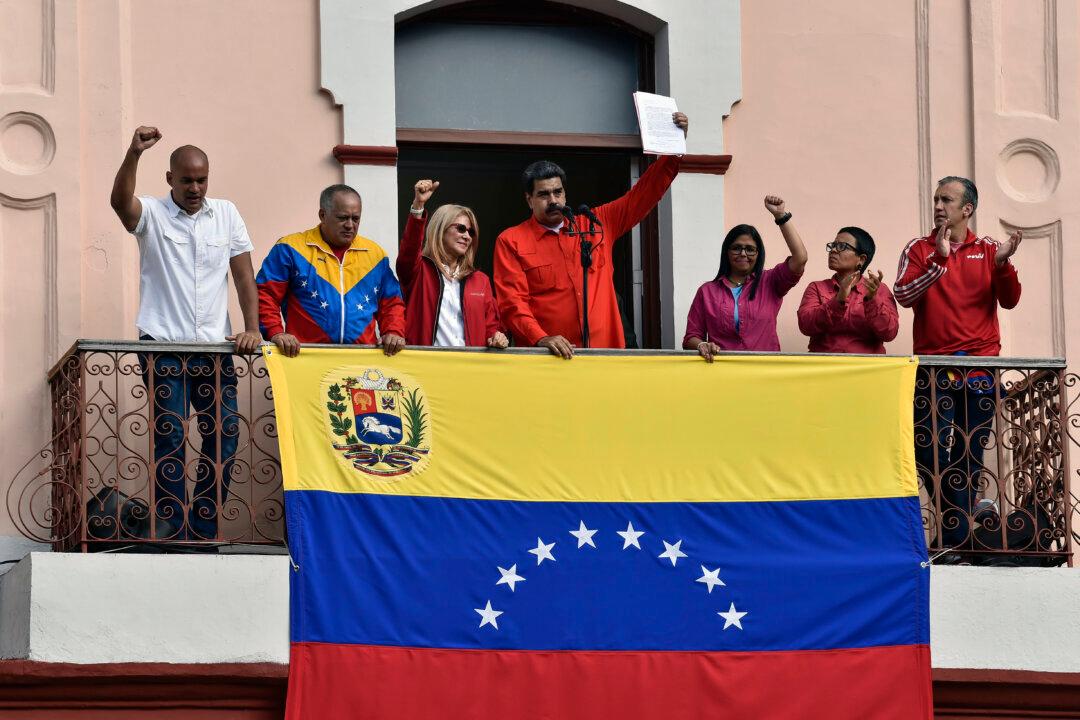Venezuelan President Nicolas Maduro is giving American diplomats 72 hours to leave the country after breaking diplomatic relations with the United States over its decision to recognize an opposition leader as interim president.

Venezuela's President Nicolas Maduro (C), speaks to a crowd of supporters flanked by his wife Cilia Flores (2-L), Venezuelan Vice-president Delcy Rodriguez (R) the head of Venezuela's Constituent Assembly Diosdado Cabello, along with other members of the government, to announce his is breaking off diplomatic ties with the United States, during a gathering in Caracas on Jan. 23, 2019. Luis Robayo/AFP/Getty Images
|Updated:




